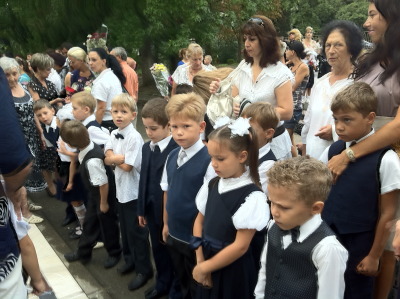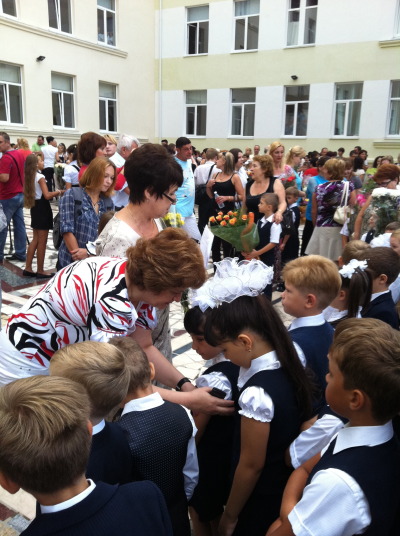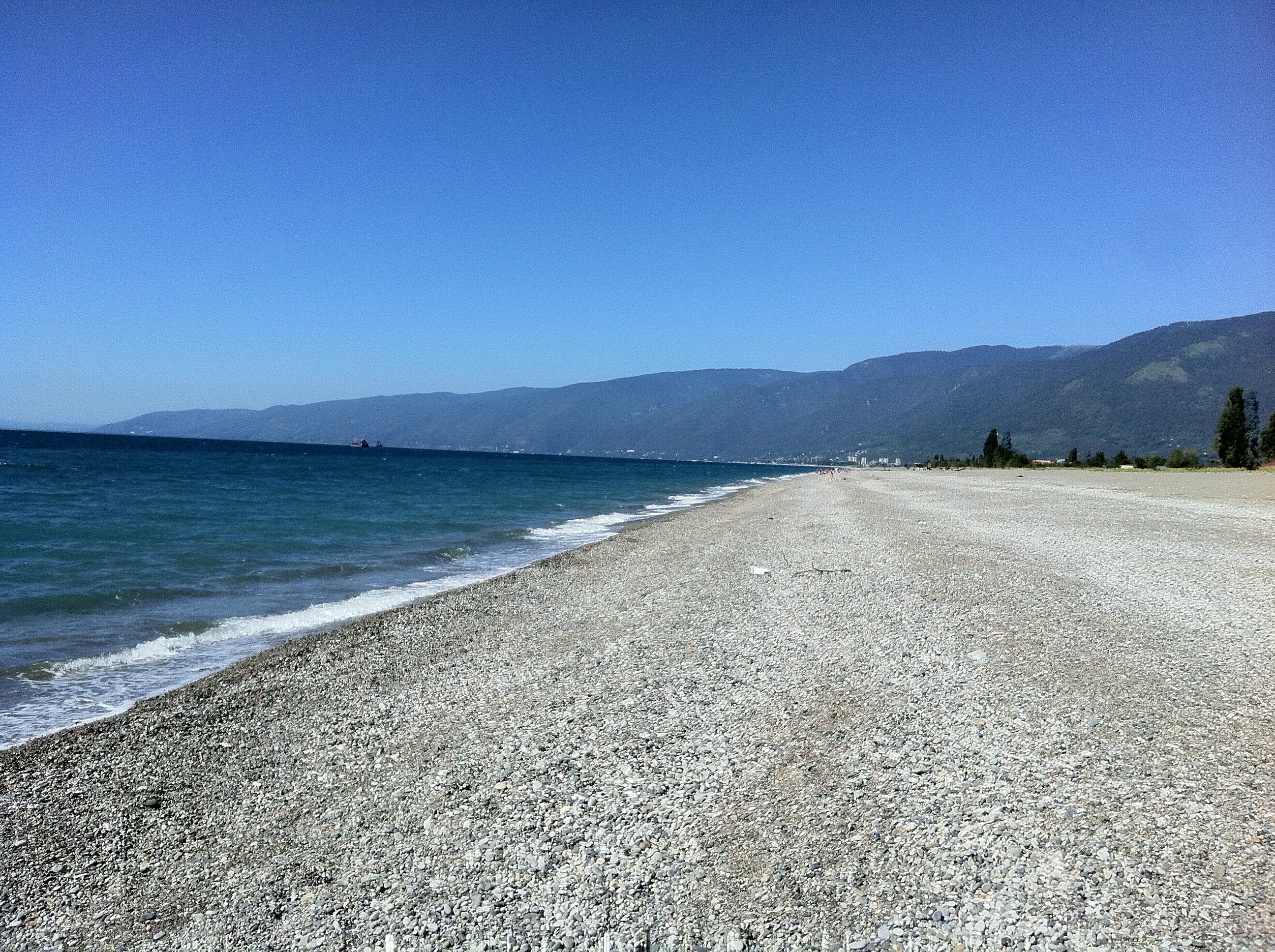Mr. George has written an article for the Commentator full of misinformation and falsehoods about Abkhazia. I don't know if he has ever been to Abkhazia, but I have. I am an American businessman and have been spending time there for the last 5 years.
Mr. George would have a reader believe that Abkhazia is occupied by Russia. An occupational power should have troops patrolling the cities and its officials running the organs of government. However, in 5 years, I have seen Russian soldiers less than 5 times and I can not recall ever seeing them in Abkhazia's beautiful capital, Sukhum. I have been to Abkhaz government offices many times and not once have I seen a Russian official. Never. The Abkhaz make their own policy.
Russia is not occupying Abkhazia.
That Abkhazia is occupied is a myth fostered by Georgian President Saakashvili and those who fail to hold his feet to the fire for his own failings on human rights issues. The Russian Army does have a presence in Abkhazia for defensive purposes and to protect the border. That is it. If Russia is occupying Abkhazia, then the American government is occupying South Korea.
Unfortunately, Mr. George has allied himself with the Soviet dictator, Josef Stalin, on the issue of Georgia's borders. In 1931, Stalin, an ethnic Georgian, dissolved Abkhazia's separate status within the Soviet Union and incorporated it into the Georgian S.S.R. If that had not been done, Abkhazia likely would have been internationally recognized, along with the 15 constituent republics of the Soviet Union when it collapsed, in 1991.
In addition to the myth of occupation, Mr. George repeats other falsehoods about Abkhazia.
Falsehood: Mr. George says that Abkhazia was ethnically cleansed in a "coordinated campaign by Moscow."
Russia did not "ethnically cleanse" Abkhazia. There is zero evidence this happened. The Russian Government was not a party to the conflict. Many Georgian soldiers fled across the border to Russia when the Abkhaz gained control. The Russian government actually supported Georgia's position on Abkhazia for many years, enforcing a blockade against Abkhazia that was not lifted until 1999. Why then? Georgia's constant bellicosity, threats and attacks.
Falsehood: The homes of Georgians who left in the conflict have been turned over to thousands of Russians moving into the country.
Wrong. Estimates put the Russian population at a lower level than in the prewar era. Mr. George talks about the number of Georgians who lived in Abkhazia prior to the events of the 1990's, but he fails to mention that the majority of Georgians were moved into Abkhazia in the 1930's on the orders of Josef Stalin. This was done to ethnically dilute Abkhazia. Later, Georgian officials tried to suppress the Abkhaz language and Abkhaz culture. Most of the homes that were abandoned at the end of the war remain empty.
I deplore the loss of any life or home in conflict. Georgia started the war when the autonomy that Abkhazia sought was rejected. The Georgian President, Eduard Shevardnadze, then ordered troops to attack (now Shevardnadze says this was a mistake and advocates Georgia's recognition of Abkhazia's sovereignty).. During the conflict, Georgians committed atrocities against the Abkhaz and many Abkhaz, Russians and Armenians sought refuge in Russia. A Georgian general threatened the Abkhaz with genocide (video can be seen on youtube). The Georgian military also burnt the Abkhaz National Library and Archives. I know this first hand, having seen it many times.
Falsehood: Mr. George says that few nations have recognized Russia's annexation of Abkhazia.
Nonsensical. If Russia had annexed it , the Russian government would hardly be encouraging other nations to recognize Abkhazia's sovereignty. Russia has not annexed Abkhazia. There is a border with border agents and customs agents on both sides. Abkhazia has its own government.
Falsehood: Mr. George states that Georgians are prohibited from voting in the election.
Another fabrication. Georgians may vote and do. They must get Abkhaz citizenship, which thousands have done. In fact, deceased President Bagapsh's wife is an ethnic Georgian. But if they seek Abkhaz citizenship, Georgians are denounced as traitors by the Georgian government.
Falsehood: The Russians have responsibility for the elections.
Wrong again. The Abkhaz conduct their elections. I was there on August 26 for the Presidential election. There were no officials from Russia at any of the polling stations I visited or that any that election observers from 28 nations (including Mr. George's, the United Kingdom) went to. In fact, I was told by observers and observed myself that the process was free and fair and democratic. One Italian observer told me that Abkhazia has more democratic elections than many of the nations that refuse to recognize it. Abkhazia has again had a peaceful transfer of power, something Georgia has never done.
Falsehood: Russia is causing poverty in Abkhazia.
Actually, Russia has a program of rebuilding Abkhaz infrastructure. Many Russian tourists visit Abkhazia, and Russia buys the majority of Abkhazia's exports. The reason for poverty in Abkhazia, which, I am told, is similar to that in provincial Georgia (I cannot go to find out. I have been threatened with imprisonment and death), is that Georgia is using its allies to enforce an economic blockade on Abkhazia.
What is the result of Georgia's economic blockade? Abkhaz products can be sold in very few places and they can not buy products directly from most nations. Their passports are not recognized, making travel more difficult. There are no bank card machines or movie theaters in Abkhazia because of the pressure on the clearing and licensing firms by Georgia.
So Mr. George decries poverty in Abkhazia and then supports the policies that cause it.
Abkhazia will never revert to Georgian control. If Russia were to leave its base in Abkhazia, the Georgian government would likely attack, as they have done in the past. So Russia is not an occupier, but the guarantor of peace. Why? They have seen a Georgian Government, armed by American money, attack small, and nearly defenseless, South Ossetia without provocation in 2008 . If any doubt the point, look at the EU Commission report on the genesis of the war.
The title of Mr. George's article states that "Sham elections in Abkhazia should not distract us from finding peace in the Caucasus". The election was not a sham and true peace can not be achieved by "us", but only by Georgia giving up its aggressive intent and territorial claims against Abkhazia and South Ossetia- two nations that want no part of living under its control. Remember every conflict in the Caucasus involving the Republic of Georgia, has been started by the Republic of Georgia. I hope that the U.S. and the E.U. and their allies will not continue to support Georgia's claims and to arm it. It is destabilizing and dangerous.








 Post a Comment
Post a Comment

